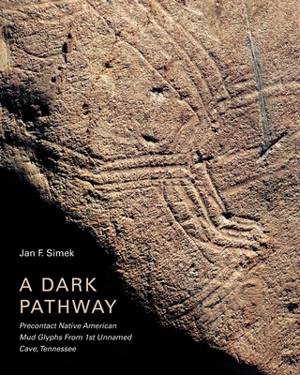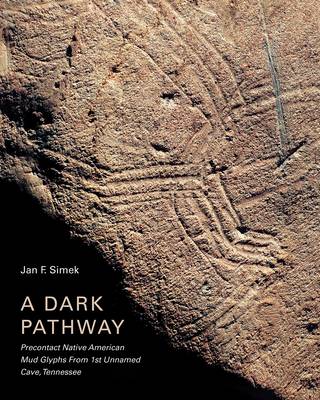
- Afhalen na 1 uur in een winkel met voorraad
- Gratis thuislevering in België
- Ruim aanbod met 7 miljoen producten
- Afhalen na 1 uur in een winkel met voorraad
- Gratis thuislevering in België
- Ruim aanbod met 7 miljoen producten
A Dark Pathway
Precontact Native American Mud Glyphs from 1st Unnamed Cave, Tennessee
Jan F SimekOmschrijving
In A Dark Pathway: Precontact Native American Mud Glyphs from 1st Unnamed Cave, Tennessee, Jan Simek and his colleagues present two decades of research at a precontact dark zone cave art site in East Tennessee. Discovered in 1994, 1st Unnamed Cave ushered in an extensive and systematic effort to research precontact cave art sites in the Eastern Woodlands, where the tradition of cave art production was widespread among ancient peoples. Indeed, when a preliminary report about 1st Unnamed Cave was first published in 1997, there were only seven known cave art sites across the Southeast; today, that number exceeds ninety.
From the tale of the cave's discovery in chapter 1 to descriptions of its art in later chapters, A Dark Pathway boasts nearly one hundred maps, high-resolution photographs, and illustrations that bring the story of one of North America's premier cave art sites to life. Importantly, Simek and his colleagues also orient 1st Unnamed Cave within the broader context of cave art sites across the Southeast, elevating them as a whole to the notable prominence they deserve. Yet his analysis does more than present and situate the discovery of 1st Unnamed Cave within the greater realm of regional cave art site studies; it also calls for the protection and preservation of these fragile sites and for the acknowledgment of the still-vibrant indigenous cultures that produced them.
With a foreword by Russell Townsend, tribal historic preservation officer for the Eastern Band of Cherokee Indians, A Dark Pathway is a long-awaited volume more than twenty years in the making. Even as he delivers a comprehensive archaeological analysis, Simek's clear presentation makes for accessible and thrilling reading not only for students of archaeology, anthropology, and Native American studies, but for interested readers as well.
Specificaties
Betrokkenen
- Auteur(s):
- Uitgeverij:
Inhoud
- Aantal bladzijden:
- 227
- Taal:
- Engels
Eigenschappen
- Productcode (EAN):
- 9781621907176
- Verschijningsdatum:
- 12/07/2022
- Uitvoering:
- Hardcover
- Formaat:
- Genaaid
- Afmetingen:
- 208 mm x 260 mm
- Gewicht:
- 793 g

Alleen bij Standaard Boekhandel
Beoordelingen
We publiceren alleen reviews die voldoen aan de voorwaarden voor reviews. Bekijk onze voorwaarden voor reviews.












